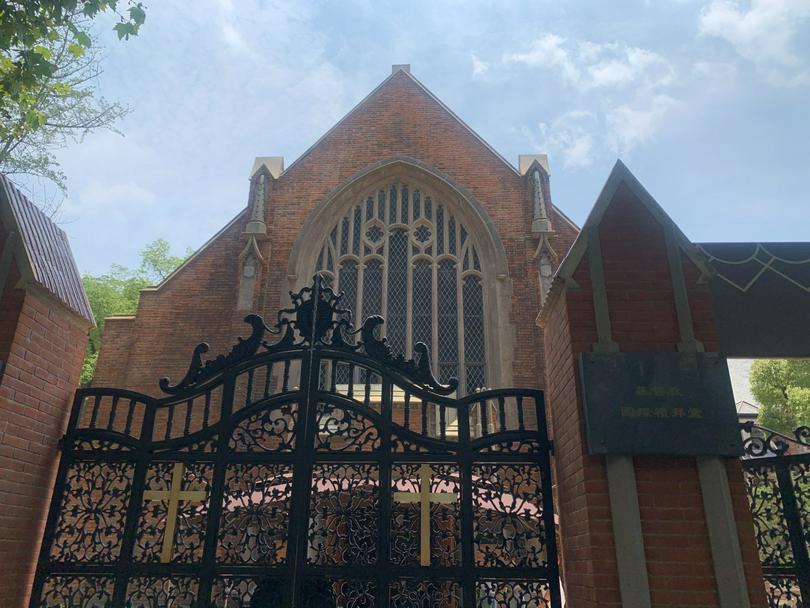As more people migrate and expatriate than ever before in history, one topic on many people’s minds is where they’d like to live and what citizenship they’d like to hold. Shanghai Community Fellowship Pastor Ian O’Connell centered his April 14 sermon around this idea, calling his message “Have you Transferred your Citizenship?”
Reading Philippians 3:17-4:1, he led the audience through what it means to be a heavenly citizen.
“Their minds are set on earthly things, but our citizenship is in Heaven,” reads the scriptures.
The passage, according to O’Connell, is packed with “wisdom, warning, exaltation, and encouragement.” It follows Paul during his imprisonment when he wrote his letters to the churches.
In the earlier verse of Philippians 3:8, Paul reminds the Philippians that worldly people boast of many things, but that those things are “garbage,” to be forsaken.
“Trash for Americans,” said Pastor O’Connell. “Trash. Garbage. Junk… He’s comparing this war within us with Christ, and he said, ‘I will give them up because they are junk in comparison to gaining Christ and being found in Christ.’”
So, what is heavenly citizenship? According to the message, a heavenly person does not hold an expectation or confidence in fleshly things.
“We put a lot of emphasis on things in this world, and that’s what Apostle Paul was pointing out,” O’Connell said. “These things are not important for God.”
The Apostle Paul wanted to know Christ, be like Christ, and experience his suffering. He said he wanted to experience Christ in a very intimate way.
“His heart was to be in a close relationship with Jesus Christ,” said O’Connell.
It’s easy today to trust in modern amenities, science, education, money, our careers, our network, and so much more, but these things never truly satisfy us, and they can’t entirely protect us from the troubles of life. Our natural way is to be materialistic and look to our own strengths, but the Apostle Paul presents a counter to that philosophy by admitting that he is not perfect.
“Not that I have already obtained this or am already perfect,” he wrote in Philippians 3:12. “But I press on to make it my own because Christ Jesus has made me his own.”
“His faith in Jesus Christ was the true most important thing,” said O’Connell. “This is a heavenly mindset. These are people with a heavenly passport who really had a heavenly view and a clear perspective, turning their eyes towards Jesus.”
The example Paul should follow is that his eyes are on Jesus, no matter the circumstance. In any trial, it’s his core focus, even though Paul once had all the resources he could ever need and was very successful.
The passage illustrates a picture of a heavenly person, contrasted with a picture of an earthly citizen. It brought Paul to tears.
“Many live as enemies of the cross of Christ,” Paul continues in the chapter.
O’Connell showed how relevant these verses are today, bringing attention to our habits of following celebrities and social media trends instead of Godly practices. It can be easy for anyone to focus on the earthly. A trap that even many believers fall into is seeking to be known, to make a name for themselves, and to be recognized. Sometimes the focus is on preachers rather than God.
Paul called this practice garbage because it brings glory to oneself rather than glory to God.
“God hates it when we steal his glory,” said O’Connell. “And their minds are set on earthly things.”
He wrapped up with a question to the audience: whether they practice “dual-citizenship,” living with one foot in the world and the other in religion.
“But, our citizenship is in heaven,” Paul wrote. “And we eagerly await a Savior from there, the Lord Jesus Christ.”
Another mark of a true heavenly citizen is recognizing that the life we live is only temporary – a test that determines whether we will find true life everlasting in Jesus or not.
“Looking here, we know that this is temporary citizenship,” said O’Connell. “It’s a temporary state.”
Tying it to other verses, O’Connell challenged the congregation to seek after heavenly treasure instead of treasure on earth that rusts and is eaten by moths and reminded them that heavenly citizens should look forward to the return of Christ and acknowledge Him as King of Kings.
He finally related the concept to countries today with varying policies on dual citizenship. While some countries allow their citizens to hold citizenship in another country, others make their people decide which nation they will belong to.
O’Connell encouraged the congregation to make a decision, carefully and prayerfully, about which citizenship they would hold for eternity before making an altar call to those who have not been saved.












